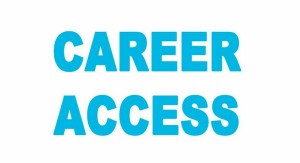The LEAD Center, funded by the US Department of Labor’s Office of Disability Policy, is hosting a four-part webinar series titled “WIOA From a Disability Perspective.”
 The Workforce Innovation and Opportunities Act (WIOA) places expanded emphasis on funding activities for youth, including out-of-school youth and youth with disabilities. WIOA also amends the Rehabilitation Act requiring VR agencies to collaborate with local education agencies to improve coordination of pre-employment transition services to students with disabilities.
The Workforce Innovation and Opportunities Act (WIOA) places expanded emphasis on funding activities for youth, including out-of-school youth and youth with disabilities. WIOA also amends the Rehabilitation Act requiring VR agencies to collaborate with local education agencies to improve coordination of pre-employment transition services to students with disabilities.
Join this webinar to learn more about cross-system collaboration and WIOA opportunities to support career counseling, skills training, job exploration, leadership development, and financial literacy education for youth with and without disabilities.
This is the third of a four-part webinar series. After registering for this webinar, be sure to view the previous webinar’s archive and register for the remaining webinars in the series – space is limited:
- Part One Archive – WIOA from a Disability Perspective: An Overview
- Part Two Archive – WIOA and the Unified State Planning Process
- Part Four: September 24, 2015 – Section 188, the Nondiscrimination Provisions of WIOA
Please note: This webinar will be captioned and a link to download the presentation will be sent to registrants prior to the webinar. To request any other reasonable accommodations, please contact Brittany Taylor at [email protected] within 48 hours of the webinar.
 Young adults with disabilities who receive Social Security benefits face serious dilemmas navigating their world: they can either pursue a successful career and lose all support from SSI/SSDI, or remain on SSI/SSDI and lose opportunities to find lucrative work.
Young adults with disabilities who receive Social Security benefits face serious dilemmas navigating their world: they can either pursue a successful career and lose all support from SSI/SSDI, or remain on SSI/SSDI and lose opportunities to find lucrative work.

 A lot could be said about the hours of sleep that I lost growing up as a youth with blindness whose greatest fear was failure, and relegation to dependence and poverty on SSI.
A lot could be said about the hours of sleep that I lost growing up as a youth with blindness whose greatest fear was failure, and relegation to dependence and poverty on SSI.

